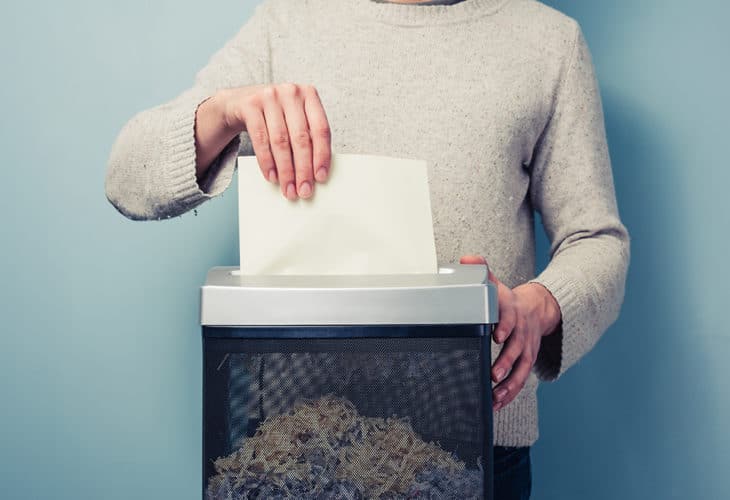How Secure Is Your Financial Data?

Here at BluPeak Credit Union, helping safeguard your data is a responsibility we take seriously, and we use the latest security measures to do just that. Unfortunately, in today’s highly connected, highly online society, there are lots of ways for criminals to steal someone’s personal or financial data. In 2018 alone, hackers stole half a billion personal records worldwide. Much of this stolen info can be used to commit unauthorized financial transactions, scams, and other kinds of fraud.
Along with sophisticated online attacks, criminals use a number of ways to target people, including:
- Phishing for personal information through phony emails that ask for sensitive information
- Secretly installing keystroke-logging software to capture usernames and passwords
- Rummaging through trash to find personal documents that haven’t been properly disposed of
- Using card skimming devices to steal payment information from the magnetic stripe on your credit or debit card
While you can’t prevent data theft and identity crimes altogether, there are some important steps you can take now to protect your personal data and avoid becoming a victim.
Protecting Data Online
Whether browsing, socializing, or shopping online, here are some identity theft protection tips to keep you in control of your info:
- Be smart with passwords. Use long passwords with a combination of upper- and lowercase letters, numbers, and symbols, if allowed. Never share your passwords or store them on your computer. Security experts recommend changing your passwords often and using different passwords for every account. That way you’ll have less to worry about if one account gets compromised. To avoid forgetting your passwords or writing them on sticky notes, consider using a trusted password manager app.
- Secure your computer and phone. Make sure your operating systems and apps have up-to-date antivirus and antimalware software and that they’re updated automatically.
- Go paperless. Get your account statements and bills electronically to keep your financial information out of the mail (and use less paper). Here at BluPeak Credit Union, it’s easy to access paperless eDocuments through Online Banking.
- Log out. Being able to bank, shop, and pay bills online is super convenient, but it also means more of your data is stored in online accounts and apps. Always sign out of these apps and accounts when you’re done, and don’t let your web browser automatically remember login credentials for your online banking, email, and shopping accounts.
- Use Wi-Fi with caution. An unsecured Wi-Fi connection in an airport, hotel, or other public place poses a greater risk. Never enter login info or send sensitive information over these networks; wait until you have a connection you trust. At home, make sure you’ve enabled encryption on your wireless router.
- Read and review your statements. Always look over your monthly banking and credit card statements to make sure you recognize each transaction. If you see anything unfamiliar, contact your financial institution right away. It’s also a good idea to confirm that your financial institution has your correct mailing address, email, and phone number.
Securing Data on Paper
To shred or not to shred? If you have lots of paper documents, that is the question. We know you don’t want a file drawer overflowing with papers or stacks of old invoices throughout the house. Fortunately, a lot of the paperwork people get should only be kept temporarily, if at all. Follow these guidelines to determine what’s safe to shred.
- How long do I keep tax returns? Generally speaking, the IRS recommends that you retain your documents (like W-2s or 1099s) for at least 3 years. They also note that there are a number of situations where you should hold onto tax documents for longer.
- Bills and account statements? Most people are safe to dispose of bills as soon as they’re paid, although self-employed workers and small-business owners may need to hold onto certain ones (like utility and cell phone bills) for tax purposes. It’s good to securely store paper statements for financial accounts for at least a year, but going paperless makes this easier. Here at BluPeak Credit Union, eDocuments are securely stored online to save you the extra clutter.
- Insurance documents? Hold onto these for at least as long as the policy is valid.
If you need to destroy some old documents but don’t own a shredder, see if your community has any free public shredding events coming up.
Once you’ve determined which personal documents to keep, make sure that they are stored securely. Things like birth certificates, Social Security cards, and tax returns should stay in a locked file drawer or cabinet, preferably one that is fireproof and waterproof. Digital documents should be kept in a password-protected location.
There’s More You Can Do
Now that you know techniques to help guard against stolen info or a stolen identity, here’s a useful guide to help you spot, and avoid falling for, eight common scams.





